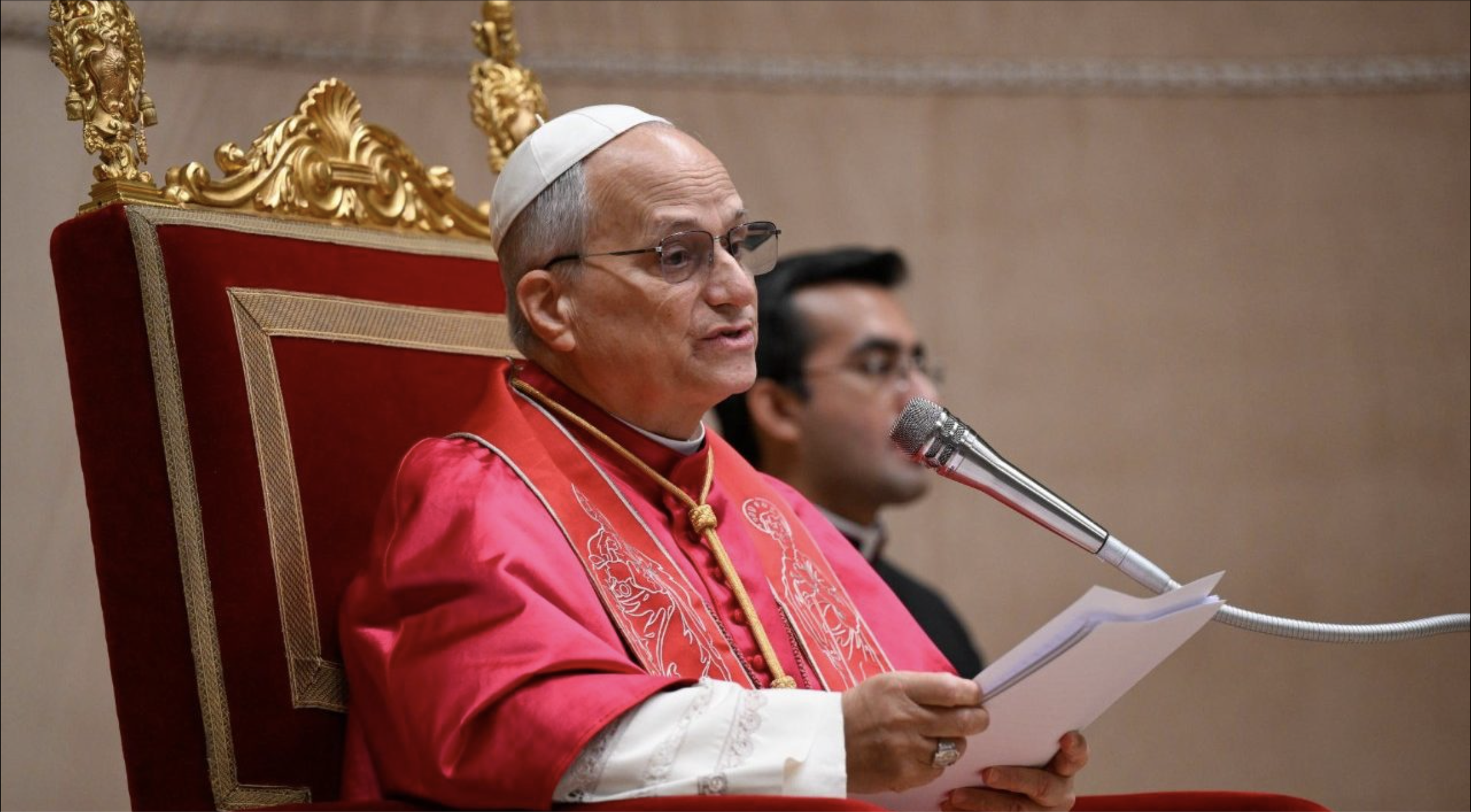While most “Crossroads” podcasts focus on religion angles in major news stories, this week’s episode focused, you guessed it, on a short news “brief.” The problem is that we are talking about a brief about a Lutheran Church-Missouri Synod story that, if the details had been accurate, was worthy of an A1 feature.
Read MoreAs Holocaust survivors age, organizations are turning to AI-powered avatars to preserve their testimony. An interactive version of survivor Sonia Warshawski, created with StoryFile, allows students to ask questions about her life and experiences. Supporters call it the future of Holocaust education, while critics question its ethical and emotional limits.
Read MoreWhile reading some of the outraged commentary about the spectacular staff cuts at The Washington Post, I keep thinking of the immortal words of King Theoden of Rohan, when facing dark waves of evil during the Battle of Helm’s Deep. All together now: “How did it come to this?”
Read More(ANALYSIS) I’ve been thinking a whole lot about social isolation recently. It’s probably because it’s this unspoken concept in a lot of the work that I do and many of the questions that I’m asked about religion in the United States. I swear I bring up Robert Putnam’s “Bowling Alone” about twice a week when I’m doing interviews or giving presentations about data on religious attendance.
Read More(ANALYSIS) Pope Leo warned that, “The stakes are high. The power of simulation is such that AI can even deceive us by fabricating parallel ‘realities,’ usurping our faces and voices. We are immersed in a world of multidimensionality where it is becoming increasingly difficult to distinguish reality from fiction.”
Read MorePope Leo XIV cautioned against “overly affectionate” AI chatbots, warning they can manipulate emotions and blur lines between humans and machines. The discussion, covered by CNN and explored in the “Crossroads” podcast this week, raises broader questions about AI as quasi-divine. A “Harry Potter” quote underscores the perils of trust and unseen entities.
Read More(ANALYSIS) Let’s start with a question: Have you heard leaders in your congregation discuss any of this information in a setting that will reach active members, as opposed to special events that draw the “usual suspects” in the flock (maybe 10-20% of members) that attend just about everything?
Read More(ANALYSIS) When MLK said character should be a goal of education, he presumably meant that moral intelligence should be developed. Everyone (except the psychopath) has a sense of morality. That’s what Jefferson meant when he declared that all men are created equal. But how to develop moral intelligence is much debated.
Read More(OPINION) Days of protest across Iran left hundreds dead as authorities imposed an unprecedented internet blackout to suppress dissent. Social media nevertheless shaped mobilization, documentation and global awareness through diaspora networks and dissident media, revealing escalating demands for regime change through the use of technology.
Read More(REVIEW) Children’s constant attachment to their screens — and how that behavior impacts their mental health and development — is an issue of much consternation for parents today, and one that’s virtually impossible to avoid or ignore. “Connected: Parenting Faithfully in the Digital Age” looks to equip parents to combat the ill effects of unlimited digital access — centered around a God-seeking family life.
Read MoreThe final months of 2025 brought another dimension to the ongoing discussion about AI among church leaders as a music “artist” named Solomon Ray climbed the charts. It came as another AI artist, Breaking Rust, did the same on the country digital charts. AI can help generate ideas, it cannot be a final source for the music sung during worship
Read More(ANALYSIS) With 2025 now behind us, it was a year filled with significant developments in religion, faith and spirituality — and 2026 is likely to be just as eventful. Here are five key religion-related issues and trends to watch for over the next 12 months in the U.S. and throughout the world.
Read More(ANALYSIS) Late in the movie “Shadowlands,” the C.S. Lewis character describes the role that books can play in real life. The famous Oxford don and author, played by Anthony Hopkins, notes, “We read books to know that we are not alone.” But Lewis never wrote those memorable words.
Read MoreAn estimated 3,300 languages have their own translation of the Scriptures. In order to improve the speed and accuracy of Bible translations into more rare languages, Avodah Connect is using AI technology. The organization recently held a webinar for those interested in learning more about how artificial intelligence is being utilized to speed up translation projects.
Read More(ANALYSIS) The Oversight Board, a body making precedent-setting content moderation decisions on the social media platforms Facebook, Instagram and Threads, issued a decision calling on Meta to mitigate information asymmetries in armed conflicts. The Oversight Board is a body examining whether Meta’s decisions are in line with its policies, values and human rights commitments.
Read MoreA recent study on AI’s reliability to answer theological questions reminds users that answers don’t come without human influence.
Read More(ANALYSIS) In his first major interview as pope, Leo XIV offers a glimpse into a papacy shaped by his American identity and a diplomatic, morally grounded approach. Speaking to Crux for an upcoming biography, the first U.S.-born pontiff addressed global issues including President Trump, artificial intelligence, and the crisis in Gaza.
Read MoreChina has introduced sweeping new regulations that strictly control how clergy from the country’s five state-recognized religions can operate online. The 18-article “Code of Conduct for Religious Clergy on the Internet” bans livestreaming, social media preaching, AI-generated religious content and all online outreach to minors.
Read MoreThe only humans yet to set foot on the Moon are American astronauts in the series of six Apollo landings that ended 53 years ago. But last January, President Donald Trump’s Inaugural Address proclaimed a far more extraordinary goal: “We will pursue our manifest destiny into the stars, launching American astronauts to plant the stars and stripes on the planet Mars. . . . Americans are explorers, builders, innovators, entrepreneurs, and pioneers. The spirit of the frontier is written into our hearts. The call of the next great adventure resounds from within our souls.”
Read MoreAfter 40-plus years on the Godbeat, let me offer this observation: It’s extremely difficult to write about ancient, complex, often mysterious religious beliefs and doctrines in language that is both accurate and easily understandable in the mainstream media.
Read More



















